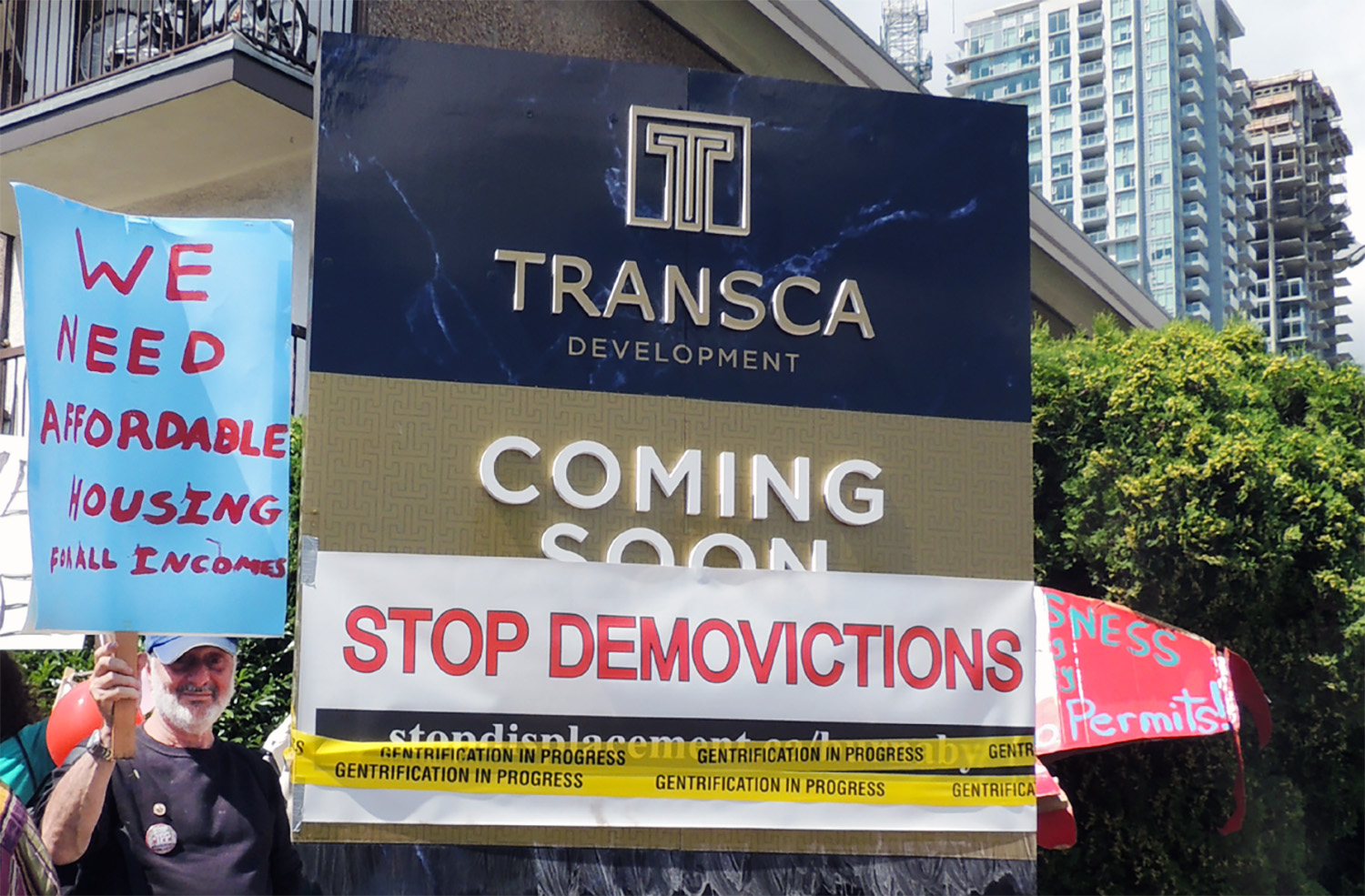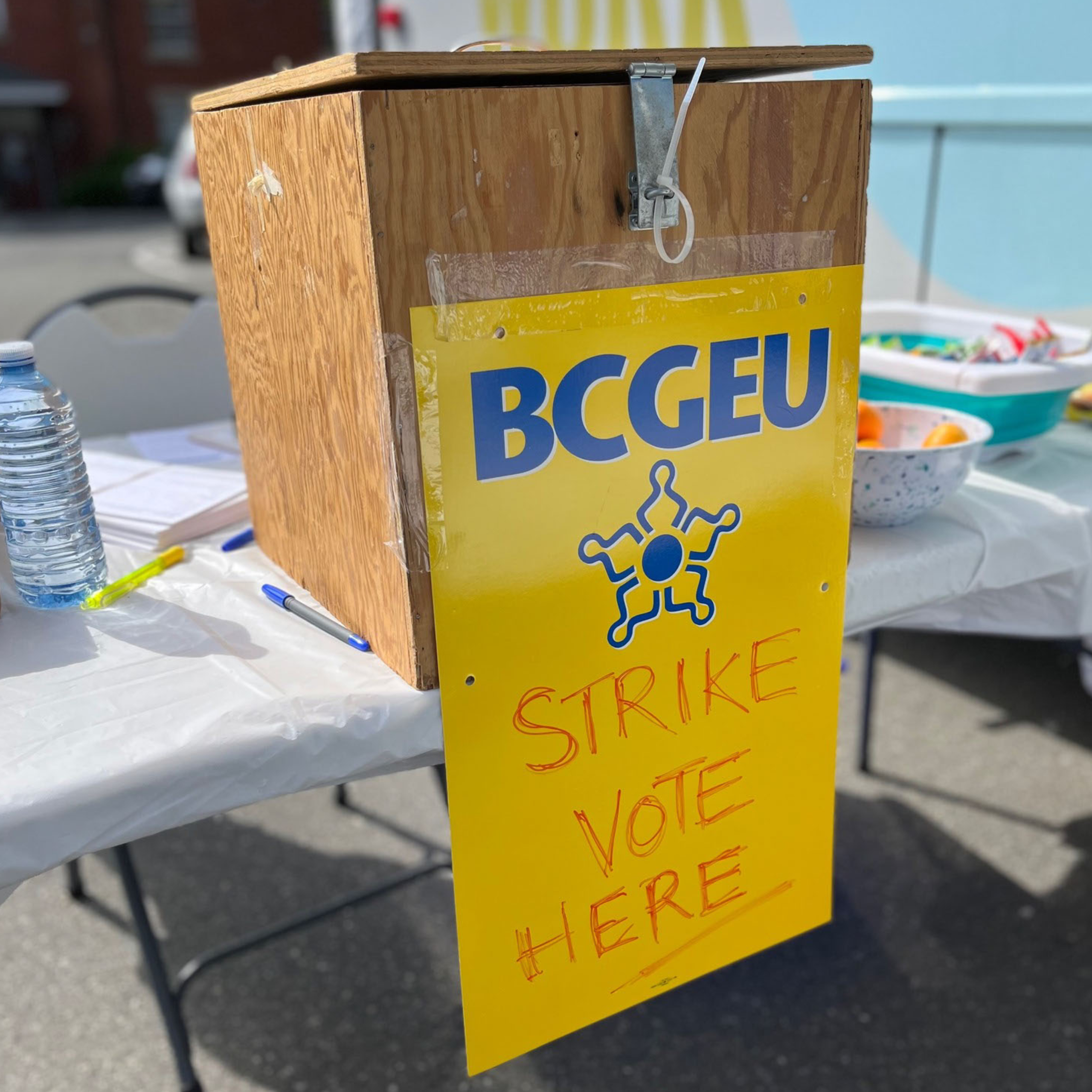Statement from the Communist Party of BC, on the outcome of the May 9 provincial election
As expected, the May 9 B.C. provincial election was a close race, resulting in what appears to be a minority government scenario, although the balance of forces in the Legislature could still change when up to 176,104 absentee ballots are counted starting May 22.
The Communist Party of BC views the initial results as a sharp rebuke for Premier Christy Clark and the BC Liberals, who lost their majority status, taking 43 seats (down from 49 in 2013), and dropping over three percent from their previous share of the popular vote, down to 40.8%. The NDP kept its share of the vote (39.8%), but increased from 34 seats up to 41 on election night. The Greens made serious gains, doubling their share of the vote to 16.7% and winning three seats, up from one. If these results hold, for the first time in Canadian history the Greens will hold the balance of power in a legislature.
Already there are conflicting interpretations of this tentative outcome. The campaign revealed widespread popular anger against the policies of the corrupt, arrogant and anti-people BC Liberals, who lost significant support in key ridings. The NDP platform was stronger in some respects than in 2013 campaign, for example by supporting the demands for a $15 minimum wage and a $10/day child care program. But the NDP policies overall failed to arouse enough enthusiasm among working people to gain large numbers of new and undecided voters. A firm commitment to reverse the damage to the BC labour code, a legacy from the Gordon Campbell years, might have tapped into the hundreds of thousands who did not bother to vote. The Greens, on the other hand, riding on their somewhat exaggerated image as environmentalists and “outsiders”, more than doubled their vote totals, up from 146,000 four years ago to 301,000 in this election.
Ultimately, this campaign revolved around the demand for political change in Victoria. The election was virtually a referendum on a government widely and correctly seen as being totally committed to the interests of global capital, the wealthy and the corporations. Every major media corporation operating in BC has given huge political donations to the Liberals, making a mockery of any pretense to “objectivity”. But while constant media attacks demonized the NDP, the Liberals were unable to shake their own well-deserved reputation as a party bought and paid for by big energy monopolies and developers. For the 59% of voters who cast their ballots for the NDP, the Greens and smaller parties, the key issue was the need to defeat the most pro-corporate government in recent history. Instead, the unfair “first-past-the-post” electoral system will likely allow the Liberals to remain in office, at least temporarily. That could change if the Premier and Green Party leader Andrew Weaver are not able to work out a deal on the two key demands raised by the Greens for support of any minority government: a ban on political party donations from corporations and unions; and introduction of a proportional representation system.
The Communist Party of BC agrees that a total ban on corporate donations is urgently needed. This is the only jurisdiction in Canada which allows unlimited donations, from inside or outside the country, and the corporate sector has taken full advantage to pour millions of dollars into the Liberal coffers. We do not support a ban against union donations, since the labour movement is democratically controlled by its members, who have a basic right to counter the political and ideological domination of big capital. But on balance, the change advocated by the Greens would be a big improvement over what the New York Times calls the “wild west” of BC politics. We are also strong supporters of proportional representation, which should not be arbitrarily restricted by so-called “thresholds” of three or five percent to elect MLAs.
Being totally dependent on corporate money to drown out any serious public debates, the Liberals at first glance appear unlikely to agree to the Green party conditions. But if the two parties engage in serious negotiations, it would not be surprising if the Liberals offered “baby steps” towards such reforms, in order to hold on to office. That scenario raises the ugly threat of a Liberal-Green coalition based on limited measures to improve electoral democracy, without changing the fundamental anti-people and anti-environmental policies of Clark and former premier Gordon Campbell.
For our part, the Communist Party of BC calls upon the NDP and the Greens to take a different approach, by respecting the powerful public sentiment for change emerging in this campaign. We urge these parties to take the first possible opportunity to defeat the Liberals in the Legislature and to form a coalition government committed to reversing Gordon Campbell’s huge tax cuts for the rich and the corporations, expanding democracy, taking action for a sustainable environment and green jobs, and tackling the housing and poverty crises impacting millions of British Columbians. Addressing the needs of working people and reversing the damage done to labour relations in BC by successive Liberal governments should be high on their list of priorities in our opinion. This would mark an important step towards real change in British Columbia.
We also want to take this opportunity to thank the voters who supported our candidates in the six ridings where Communists were on the ballot. Despite ongoing efforts to limit electoral debates to the so-called “major parties,” the Communist Party of BC was able to reach out to a record number of voters, on the streets, at forums, and through a greatly increased social media presence. We were pleased to be able to field candidates for the first time in many years in Kamloops, an important working class centre in BC.
The warm response to our platform indicates that working people in British Columbia are increasingly receptive to our call to put people’s needs ahead of corporate greed, and to end the Liberal government’s attacks against social programs, the environment, and democratic rights. Our candidates urged voters to defeat the Liberals and to vote for fundamental change, and we are pleased to note that the level of support for Communists at the ballot box was the highest in any BC election in over thirty years. This is a good indication that whichever party takes office in Victoria, there are growing possibilities for a powerful and united province-wide people’s fightback to reverse the damage inflicted by the Liberals over the past sixteen years, and to win a much more favourable balance of political forces in the Legislature in the next election.




